A tiny hand smeared with black
Oil community in North Syria
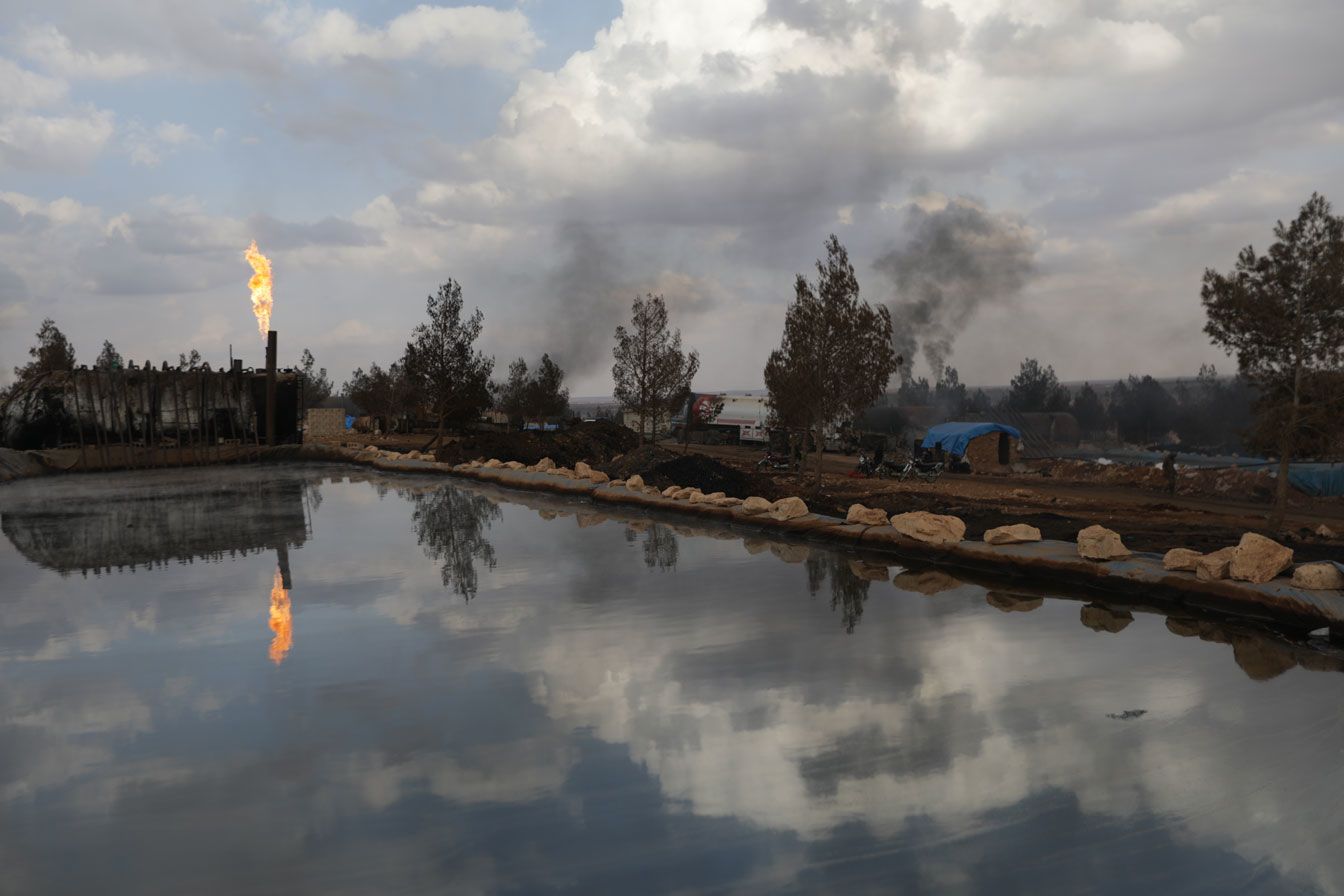
A flame of fire appears on the far horizon. The closer you get to the hill the more flames that appear from among the trees with accompanying black smoke.
It is "the hill of burners" as Syrians like to call it as a label of the makeshift primitive oil refineries. These refineries are used to refine crude oil and transform it into fuels for daily uses in Kubat Al-Shieh in east Aleppo.
In this place, you will be appalled to know the details of this “dangerous” process, where children take part in some of its phases, especially that some of those children are under ten years age.
5000 ‘makeshift’ oil refineries and the number is growing!
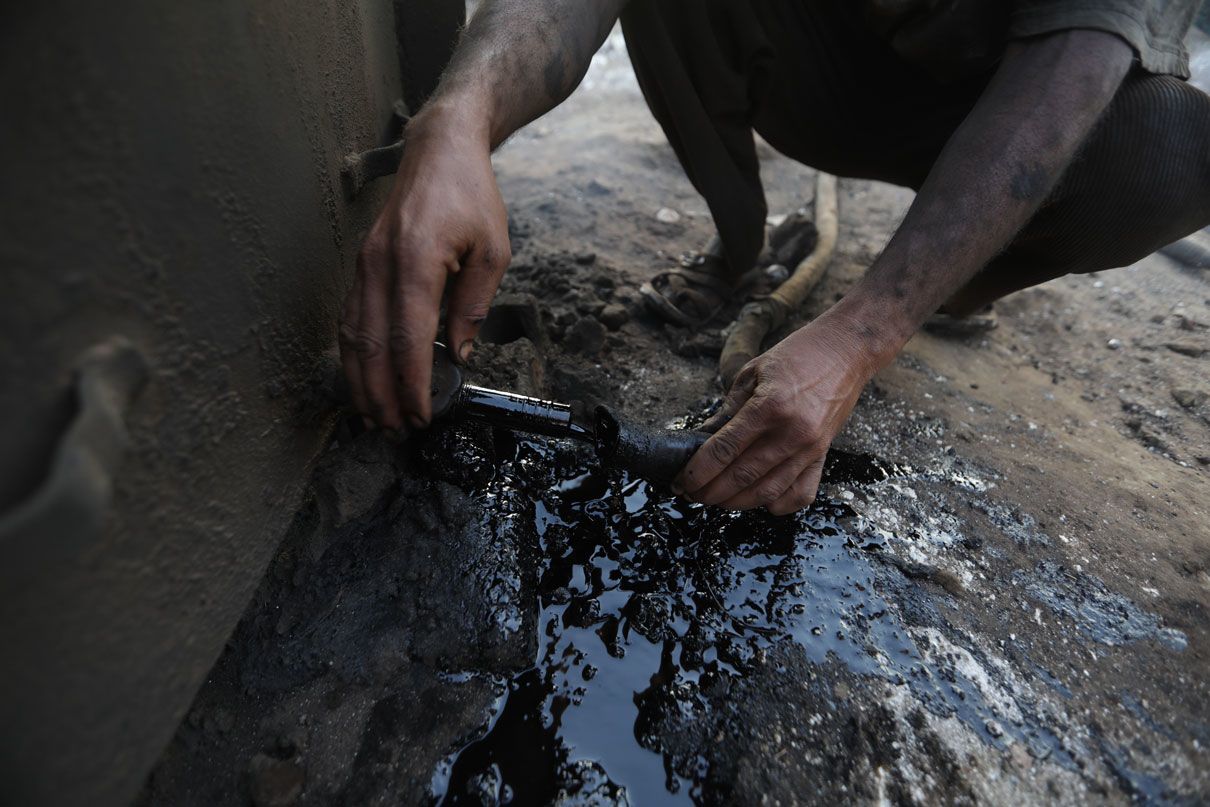
Although there are no statistics available on the accurate number of makeshift oil refineries operating in northern Syria, a report published on Bellingcat indicates that there are up to 5,000 backyard oil refineries that have emerged in recent years, according to satellite imagery.
Black pools, long trenches, and charred earth have become common sights in the fields of north-west Syria, signs of an informal oil economy that has developed during the war.
This number of these informal refineries is growing although everybody we have met seemed to be fully aware of the dangerous working conditions like barrels that could explode.
People are constantly exposed to toxic fumes emitted from the burning process that’s going on, and also a lot of children are involved.
They help build these refineries, take turns guarding them, and participate in selling these products resulting from the crude oil refining operations.
Oil derivatives have their labels!
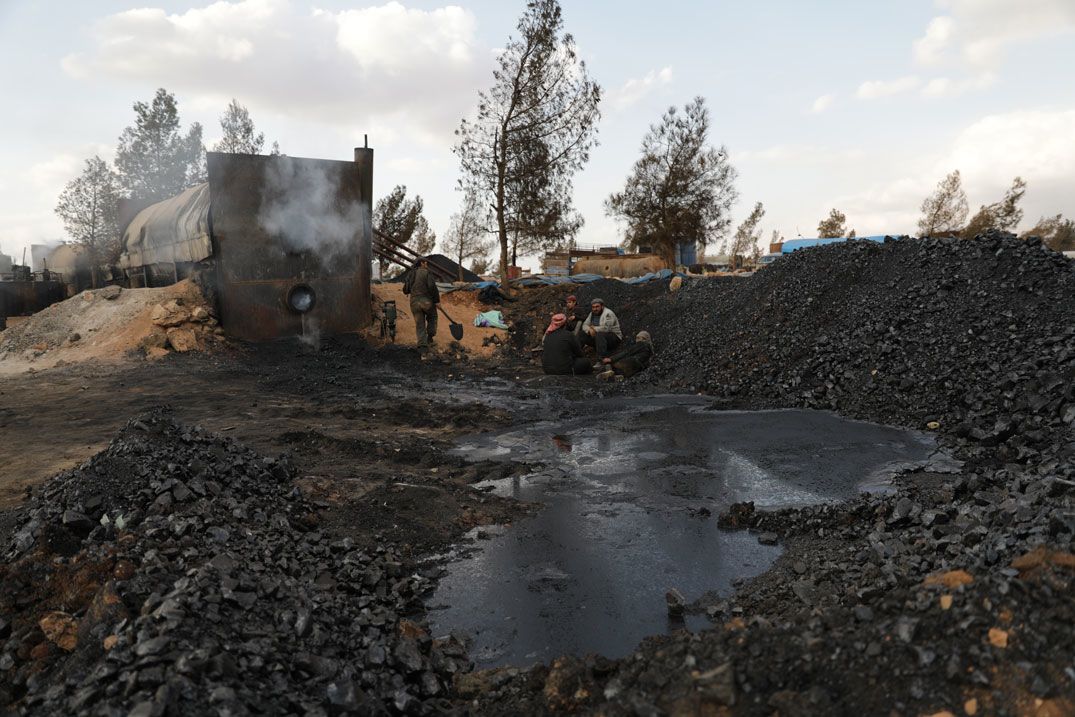
Ras Tabkha gasoline is a very top quality product but there also Nidhami (regime’s) gasoline, super diesel, white and yellow kerosene as common labels for fuel products that are offered for sale on the street in the city of Al-Bab, east of Aleppo, and in all other regions that are no longer under the control of the Syrian regime.
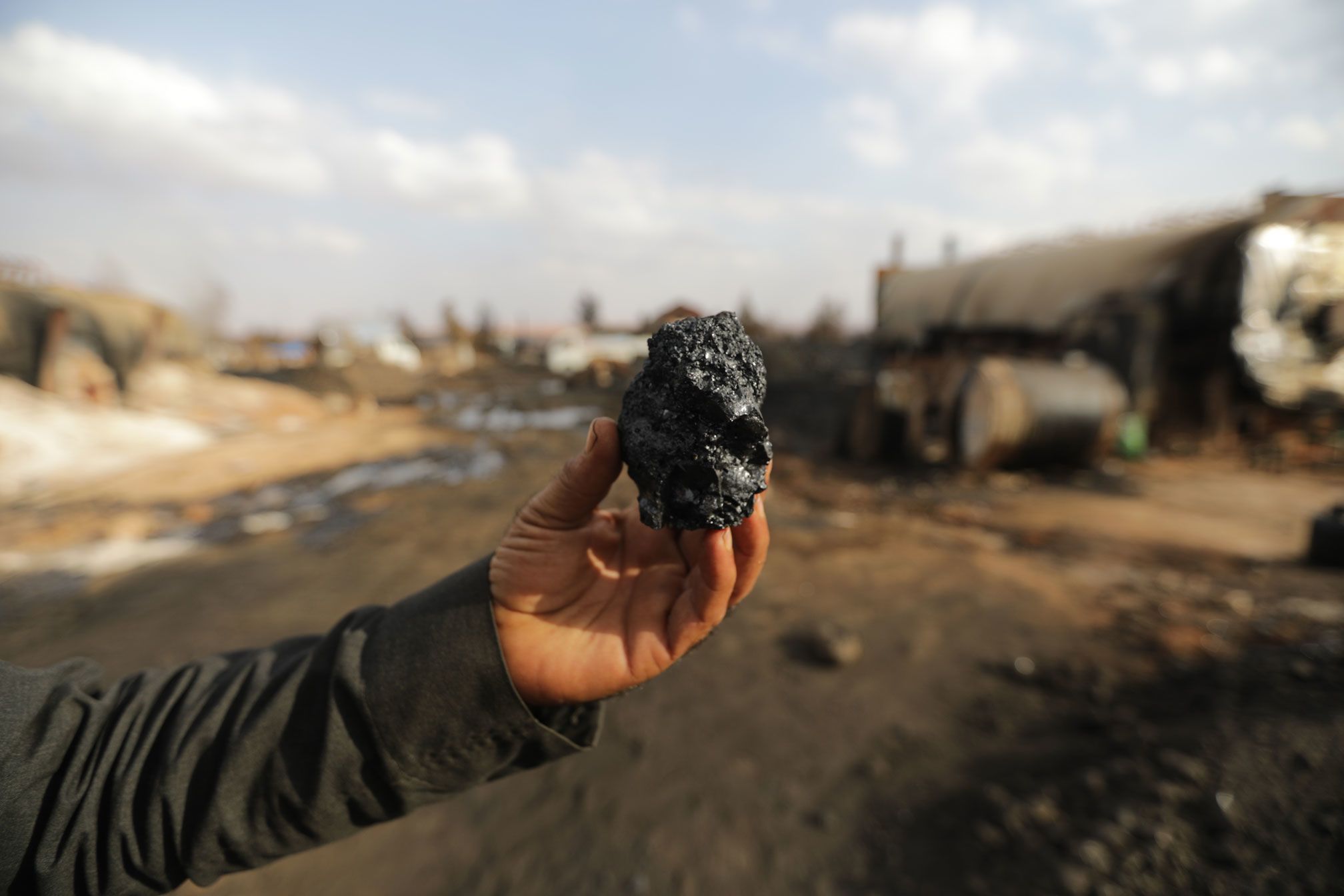
These fuel products are characterized by their lower price compared to similar products produced in the areas controlled by the regime’s forces.
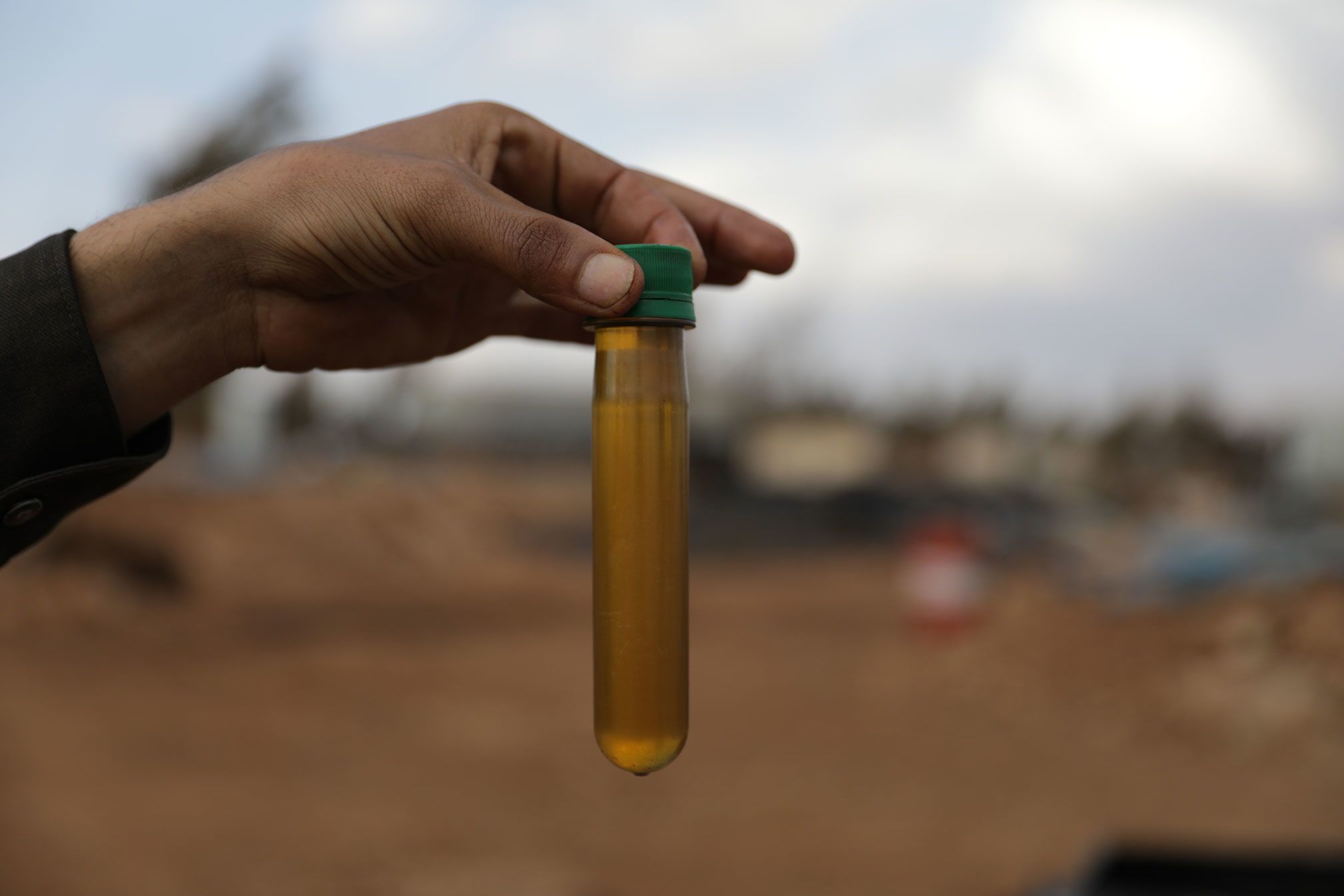
The label Nidhami (regime’s products) has become associated with the fuel products that come from areas under the control of Syrian President Bashar al-Assad’s forces while mukarrar (refined fuel products) is used for the fuels produced by the local refineries in areas under the control of the Syrian opposition fractions.
Makeshift oil refineries have increased significantly after the majority of oil fields got out of the control of the Syrian regime. Residents relied primarily on these claimed oil fields to produce the vital fuel products that the regime has banned in the areas out of its control.
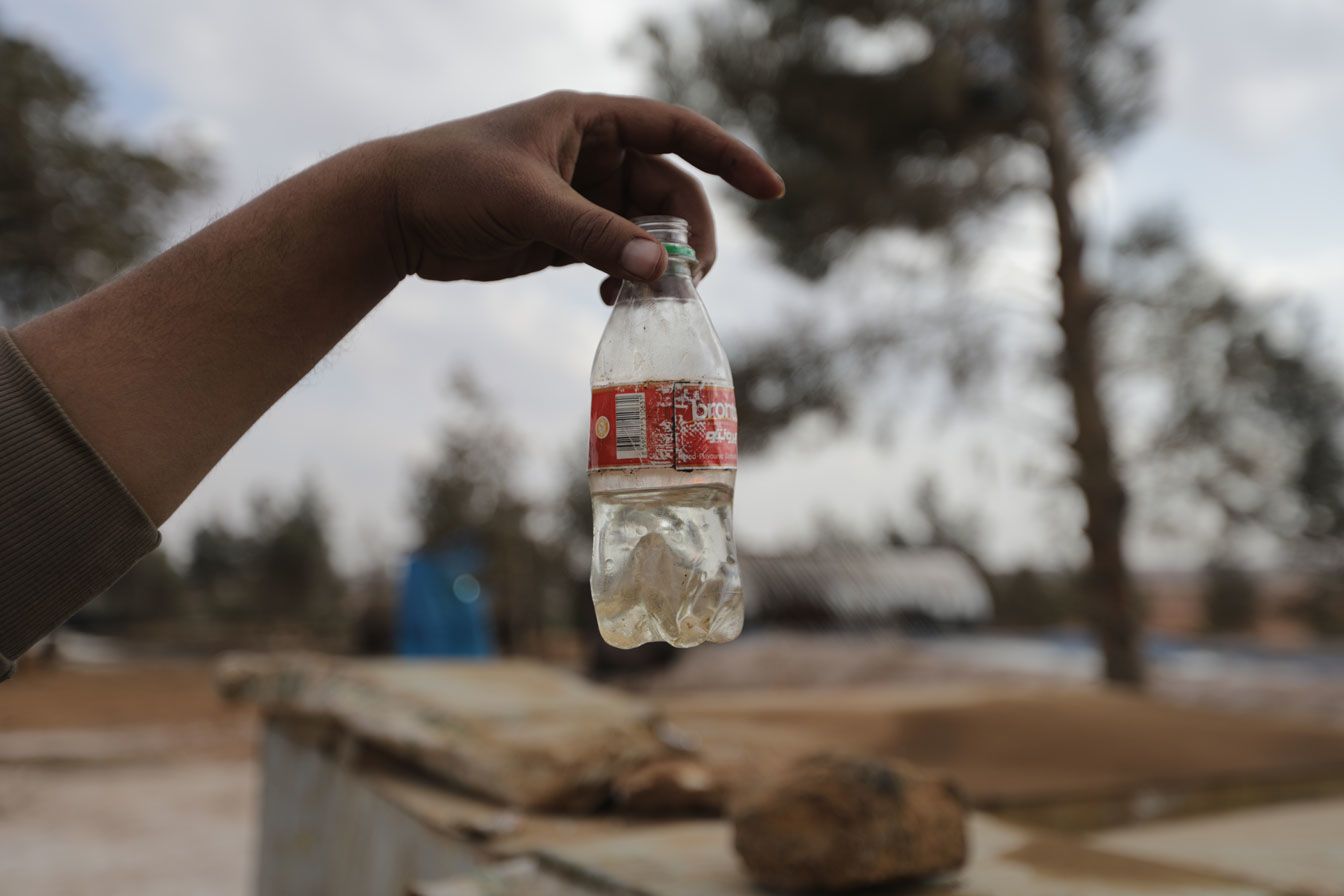
These primitive substances are used for cooking, heating, and transportation purposes.
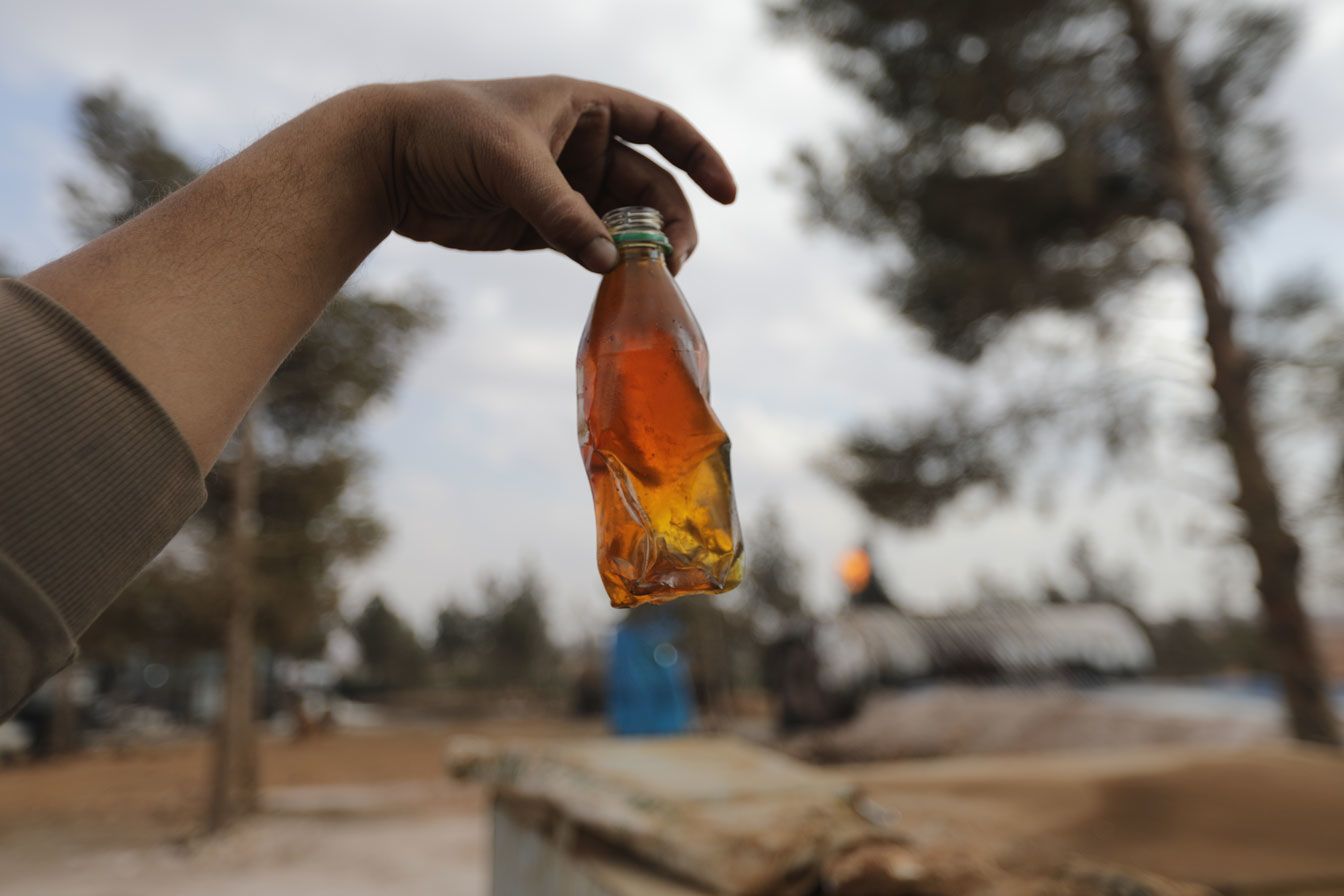
Now, let’s take a tour through one of these burners
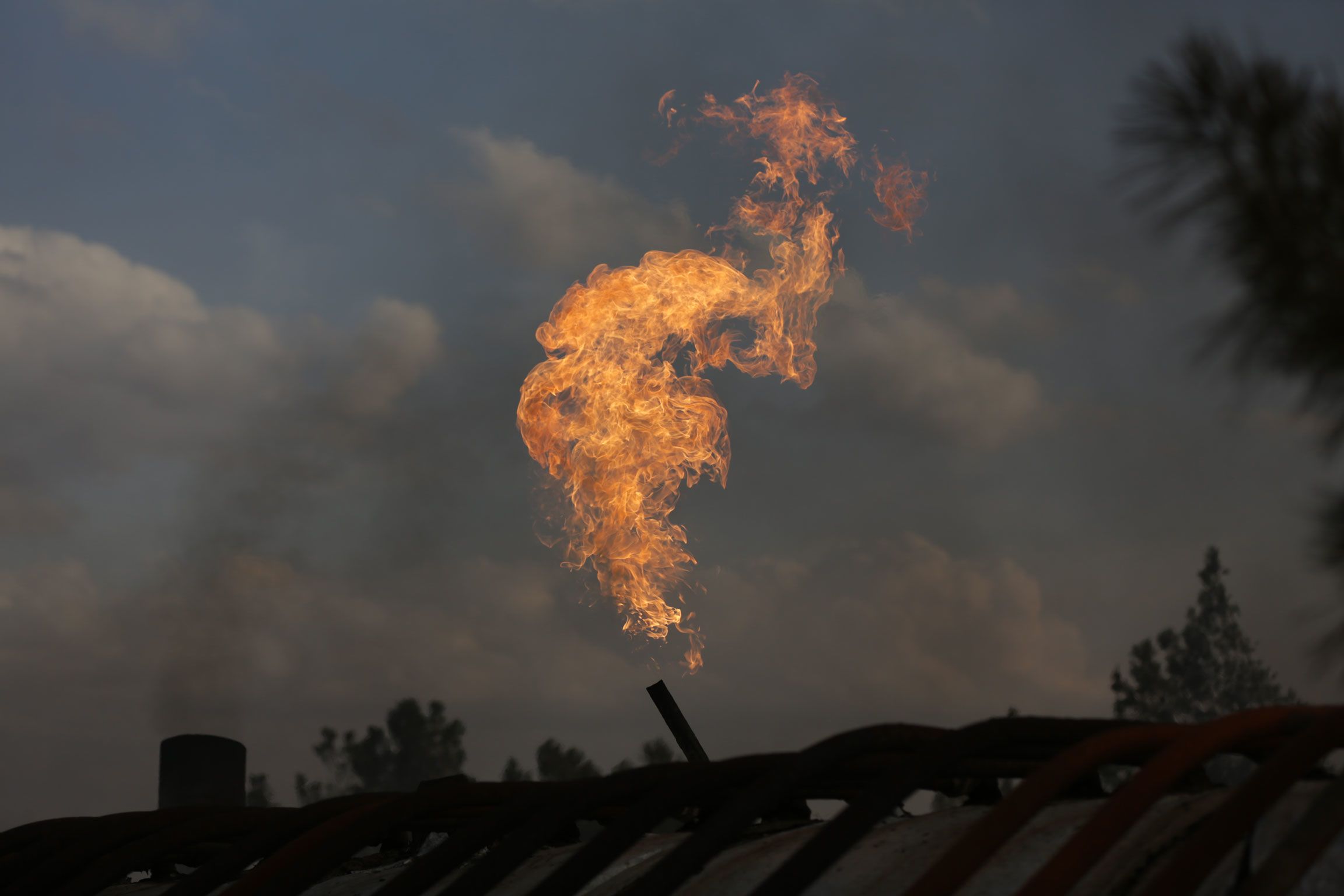
Khaled, who originally comes from the town of As-Safirah, east of Aleppo, was displaced to the northern countryside of Aleppo as the regime has taken control of his hometown. Today he is working to restore his refinery at a cost of $19,000.
“The price of the burner we use ranges from $15,000 to $20,000. The cost varies according to the capacity of the oil tanks and the produced barrels. Today there are approximately 500 burners distributed among three clusters,” Khaled told Tiny Hand. Fuel prices change almost every week in the areas under the control of the opposition forces.
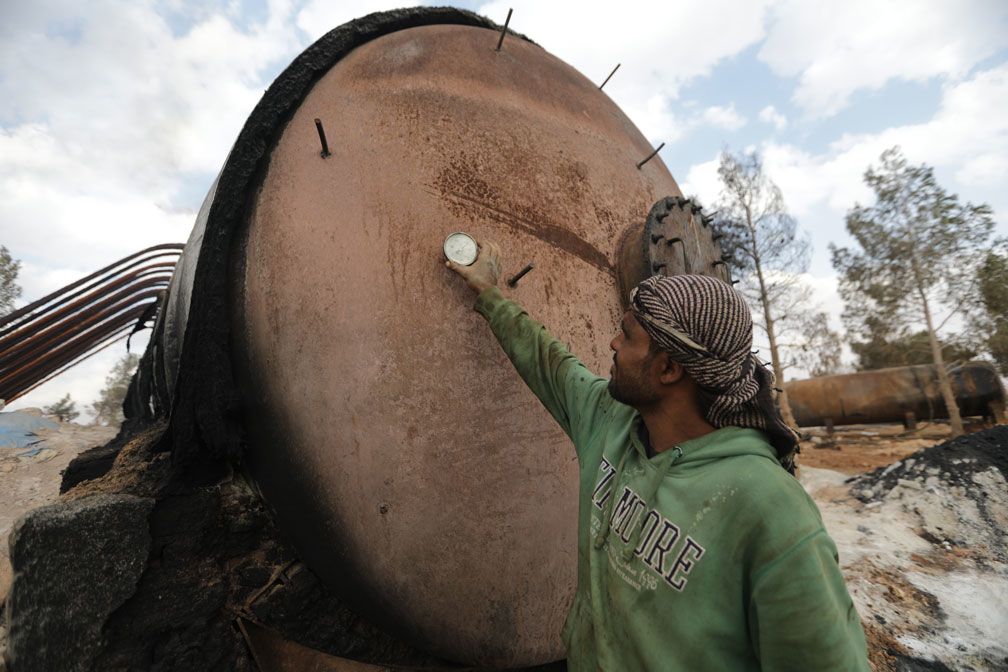
Khaled has been working on applying an insulating material to the refinery floor to prevent water leakage. He realizes "how very dangerous this work is". He told us, "We set fire under the fuel tank to raise its temperature but we have no other choice.”
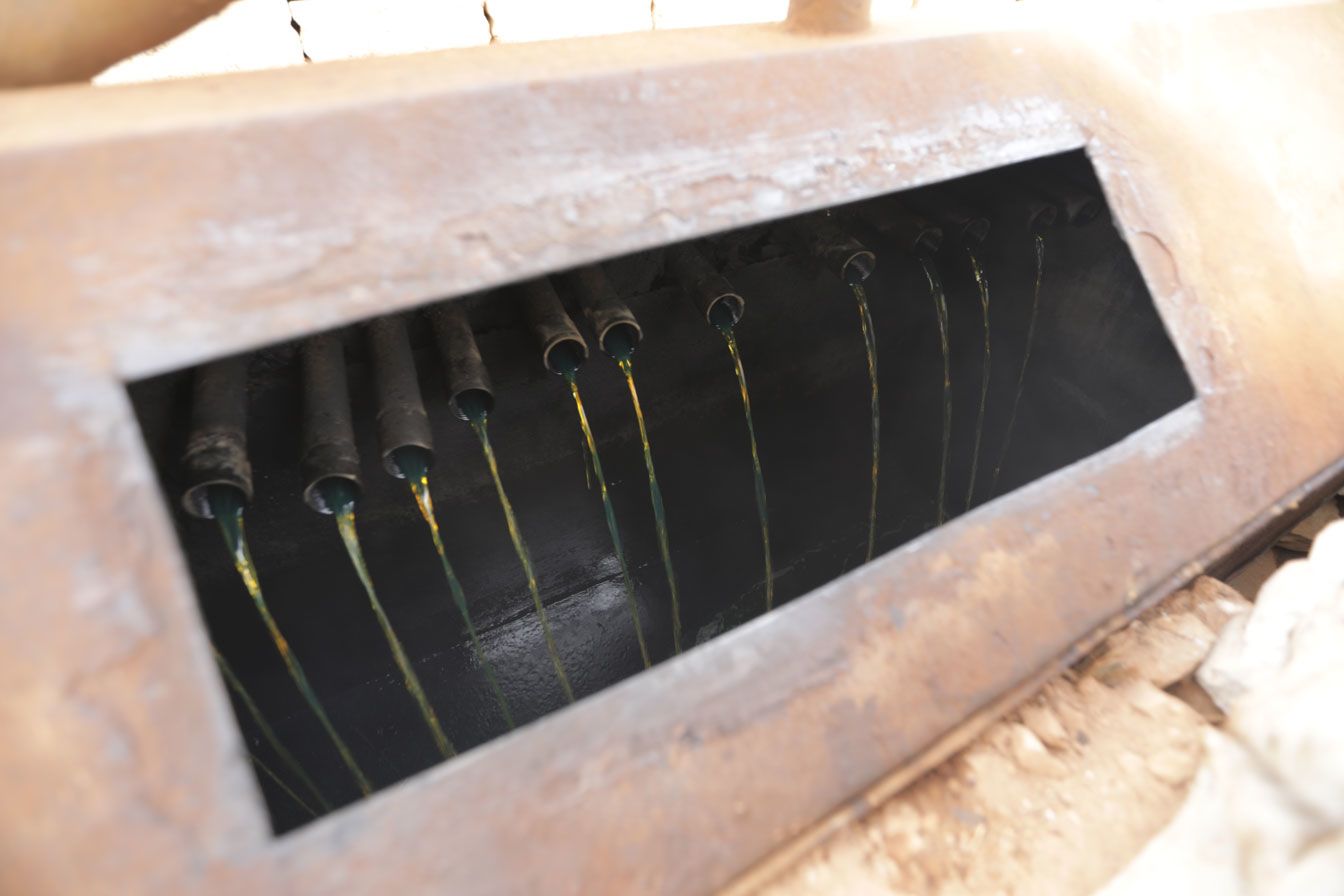
Khalid’s concerns were further confirmed by Abdullah Abu Muhammad, 30 years old, from As-Safirah town, east of Aleppo. “In this work environment, we suffer as workers from the emissions produced from the burning process, as produces toxic fumes and deadly chemicals. Many workers lost their lives during work due to the diseases this job causes. Yesterday one of our colleagues died in a burner’s explosion as he got burned. However, it is the pressure from the explosion that caused his death, according to the physician’s report.”
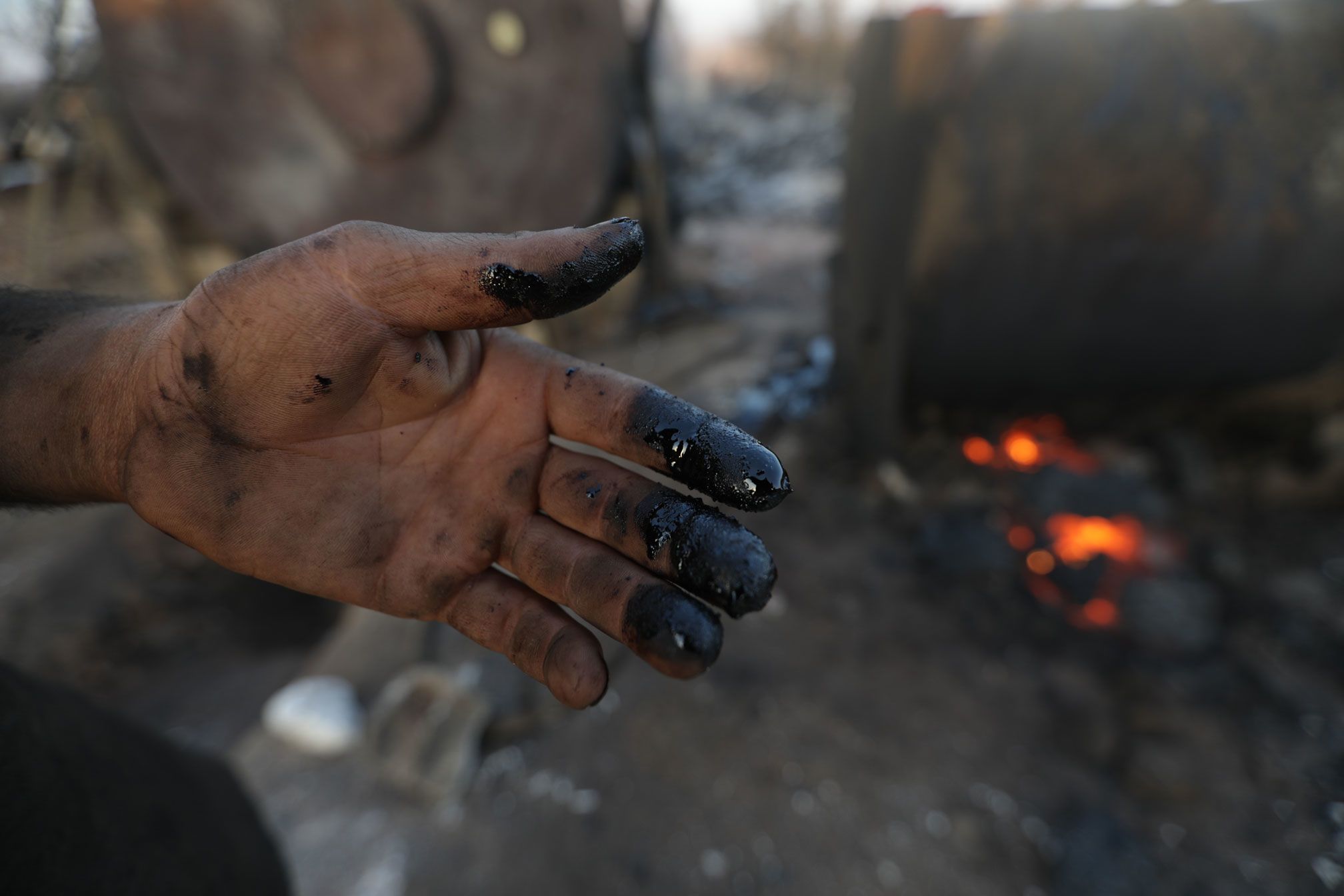
The refining process is considered “a difficult and long process as it takes from 24 to 36 hours for the fuels to be produced. Afterward, we extract the coal and asphalt from the oil refining waste from inside the tank. This process takes three days," according to Abu Muhammad. He estimates the profits earned by the refinery for each refining process of an oil tank to be in the range of 200,000-600,000 Syrian pounds ($400-$1200).
The Tanks are primitive in everything!
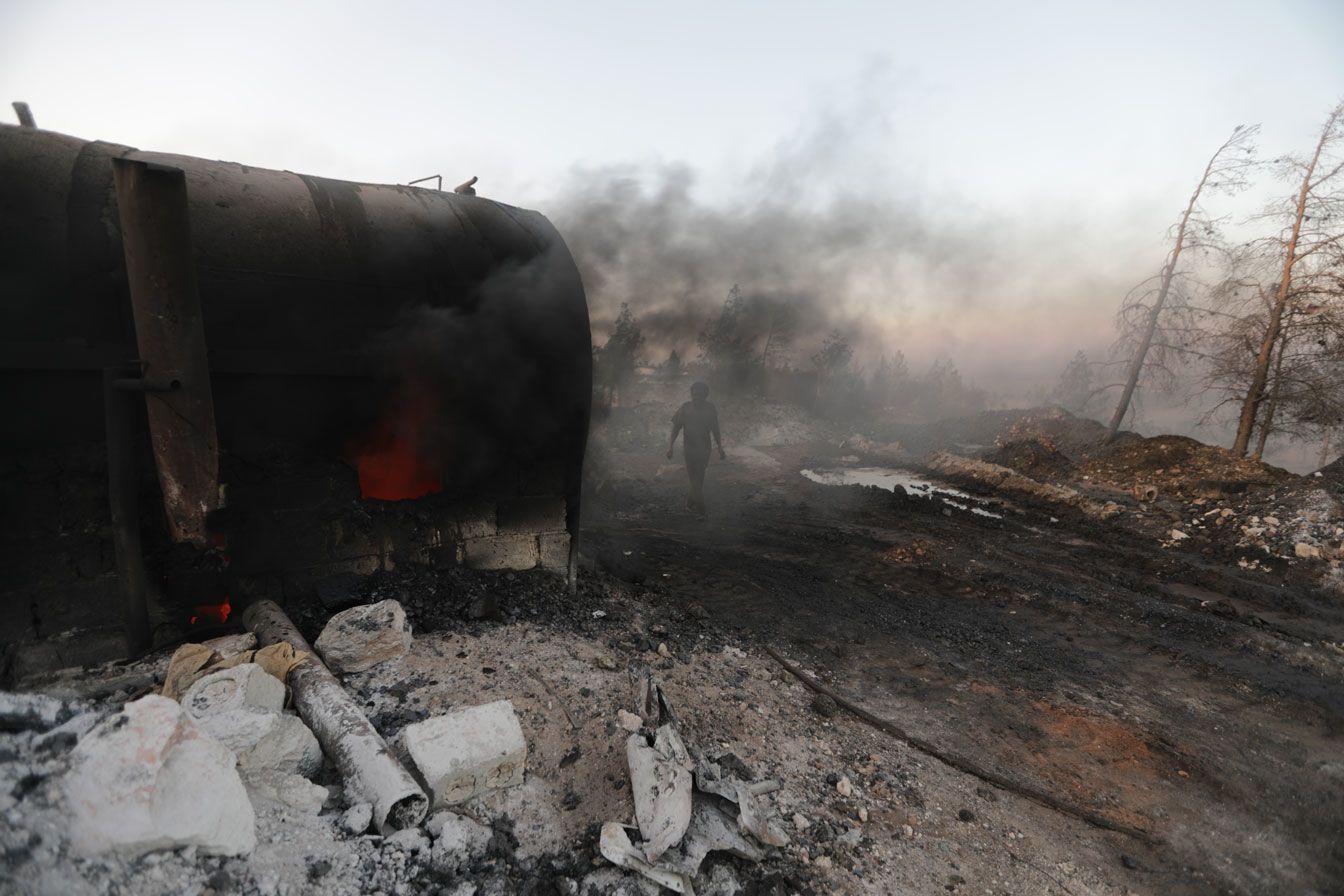
Work in oil production is not limited to refining oil and extracting fuels, as there are maintenance and installation workshops that work permanently in the region since the refineries often experience recurrent major breakdowns and because their primitive work depends on setting fire beneath the tanks, where children are heavily involved. There is almost no workshop without children.
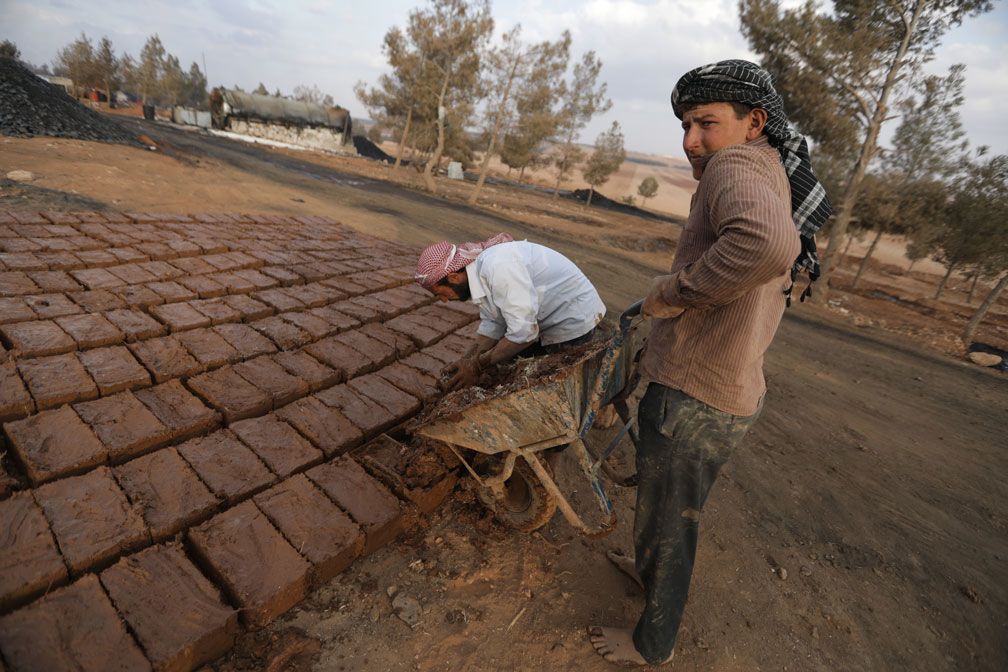
especially those specialized in forming building blocks of clay, which are the most common because, according to workers, they are “the most tolerant to high temperatures resulting from the fire ignited under the tank. These stones are placed in the vicinity of the tank to preserve the heat.”
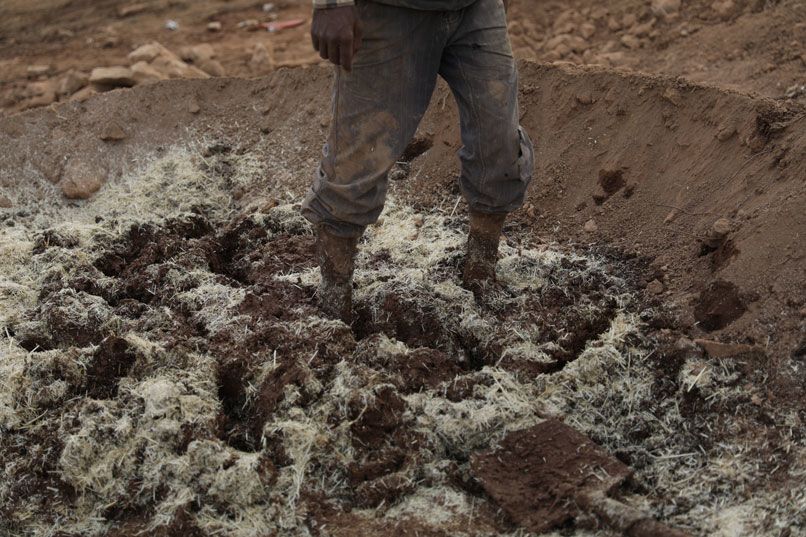
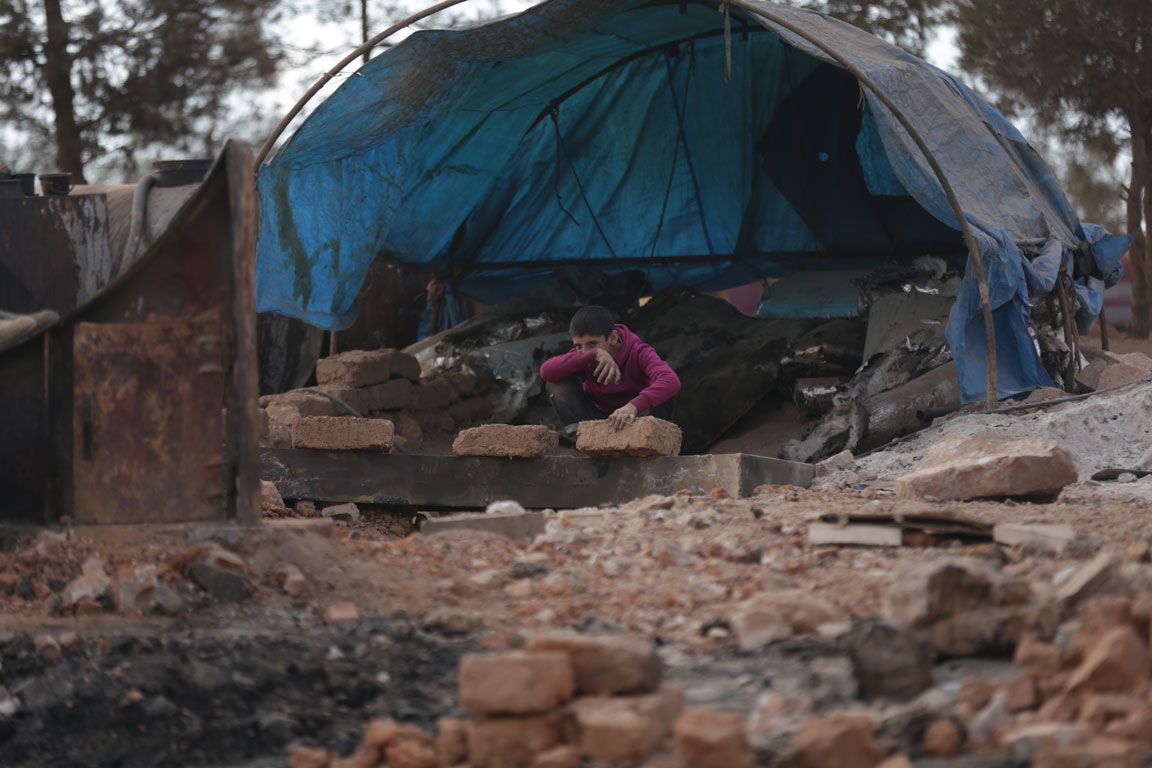
Last station
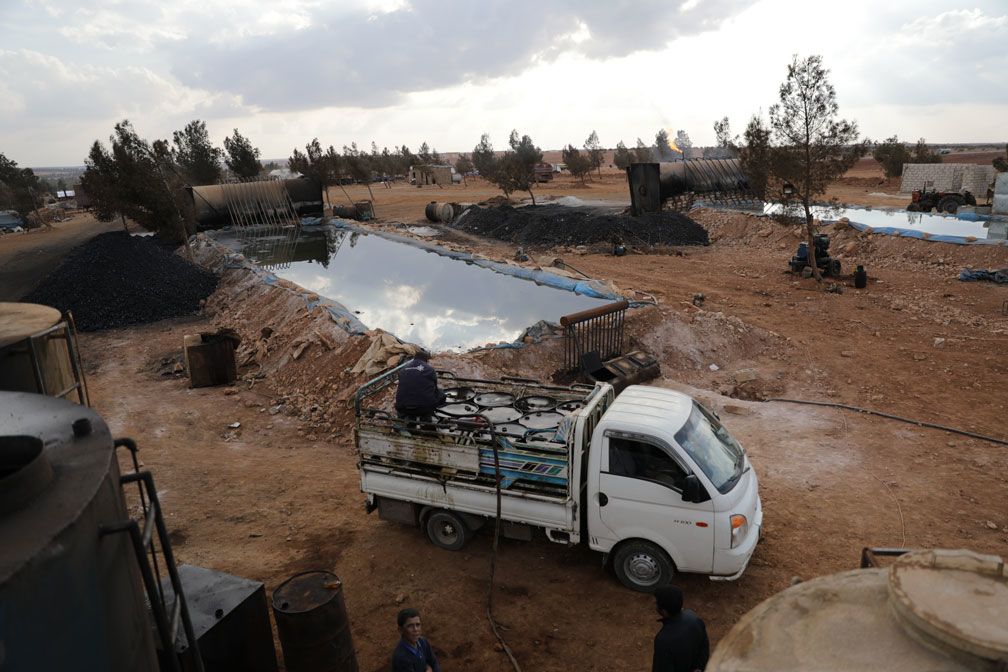
Zakaria, 14 years old, has been selling fuel products for two years. He used to work in Deir Ezzor before he flees the war and moves to the Syrian north.
Today, he runs an outlet with his father for selling fuel products in one of the streets of the city of Al-Bab, east of Aleppo. Zakaria explained, “We get fuel products from the oil refineries scattered in the region and sell them at a wholesale price.”
“The price of Nidhami gasoline is 500 Syrian pounds (one USD dollar) while we sell refined fuel at a price ranging from 150 Syrian pounds (30 cents) to 250 Syrian pounds (50 cents) depending on the cleanliness of the gasoline,” he told Tiny Hand.
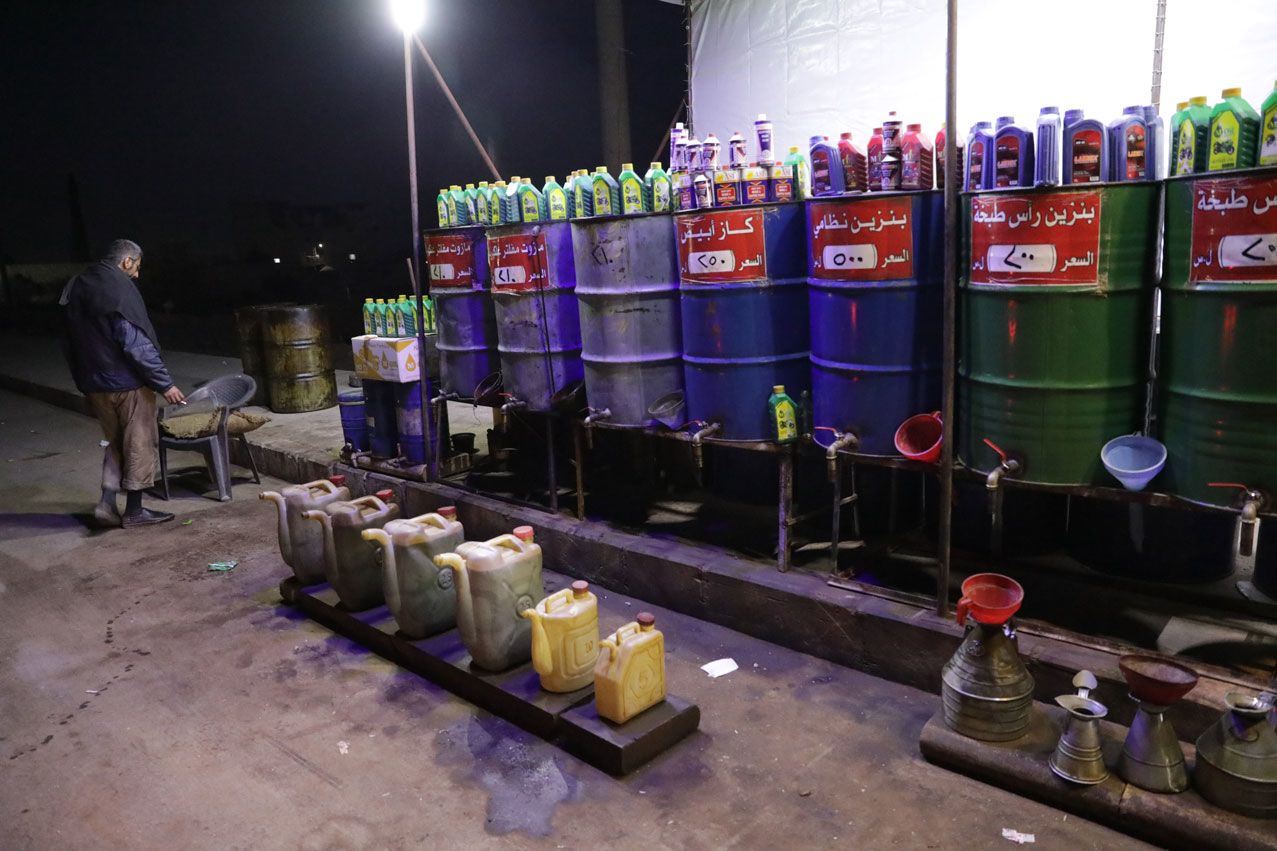
While Zakaria was busy arguing with one of the passers-by over the cleanliness of the gasoline and its higher price, many warn against the problems arising from such dangerous process and the diseases it causes to the respiratory system and skin.
In the long term, it could be the main cause of cancer-related diseases in the region since the burning of fuel increases fears among the local residents.
